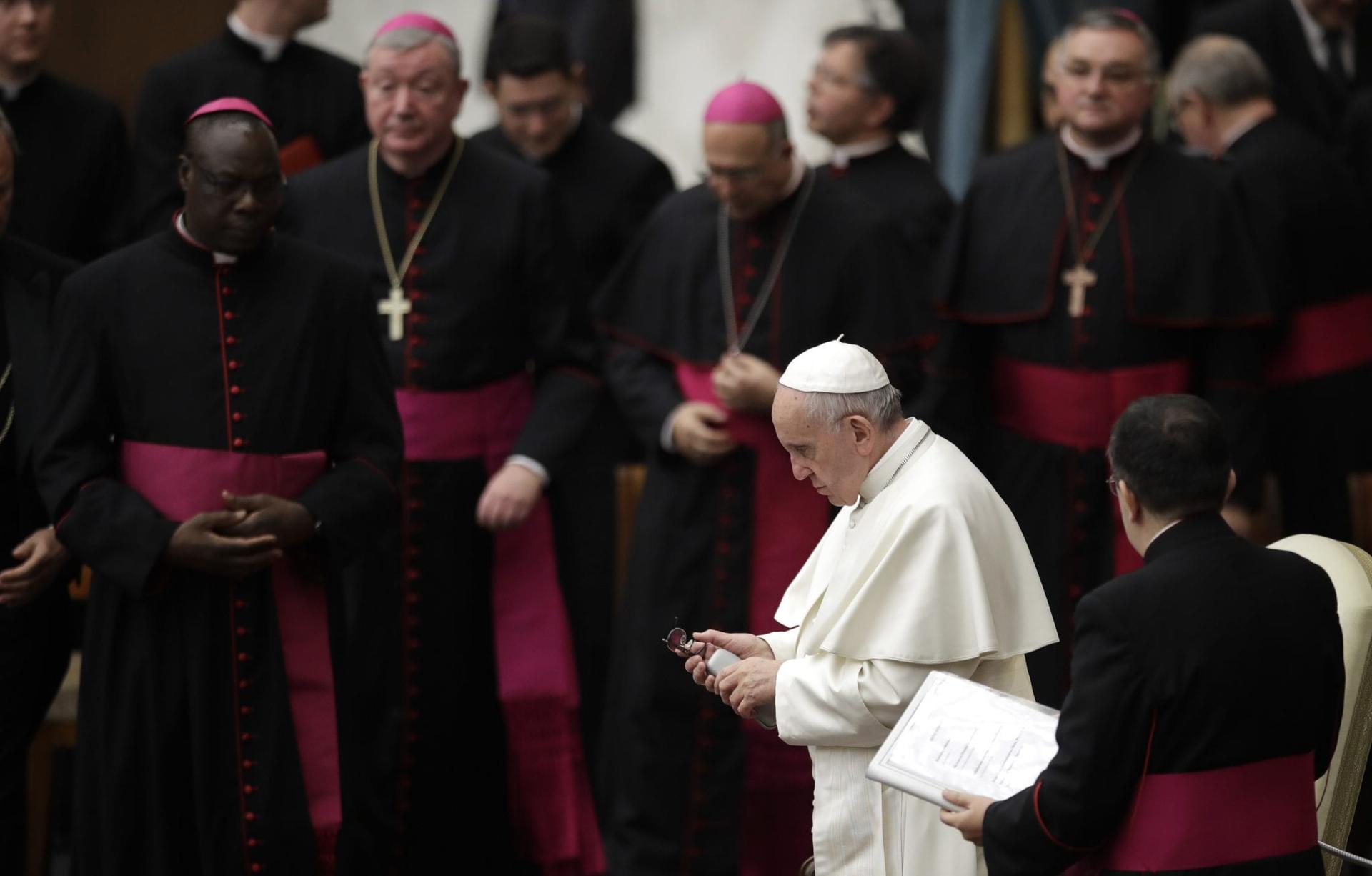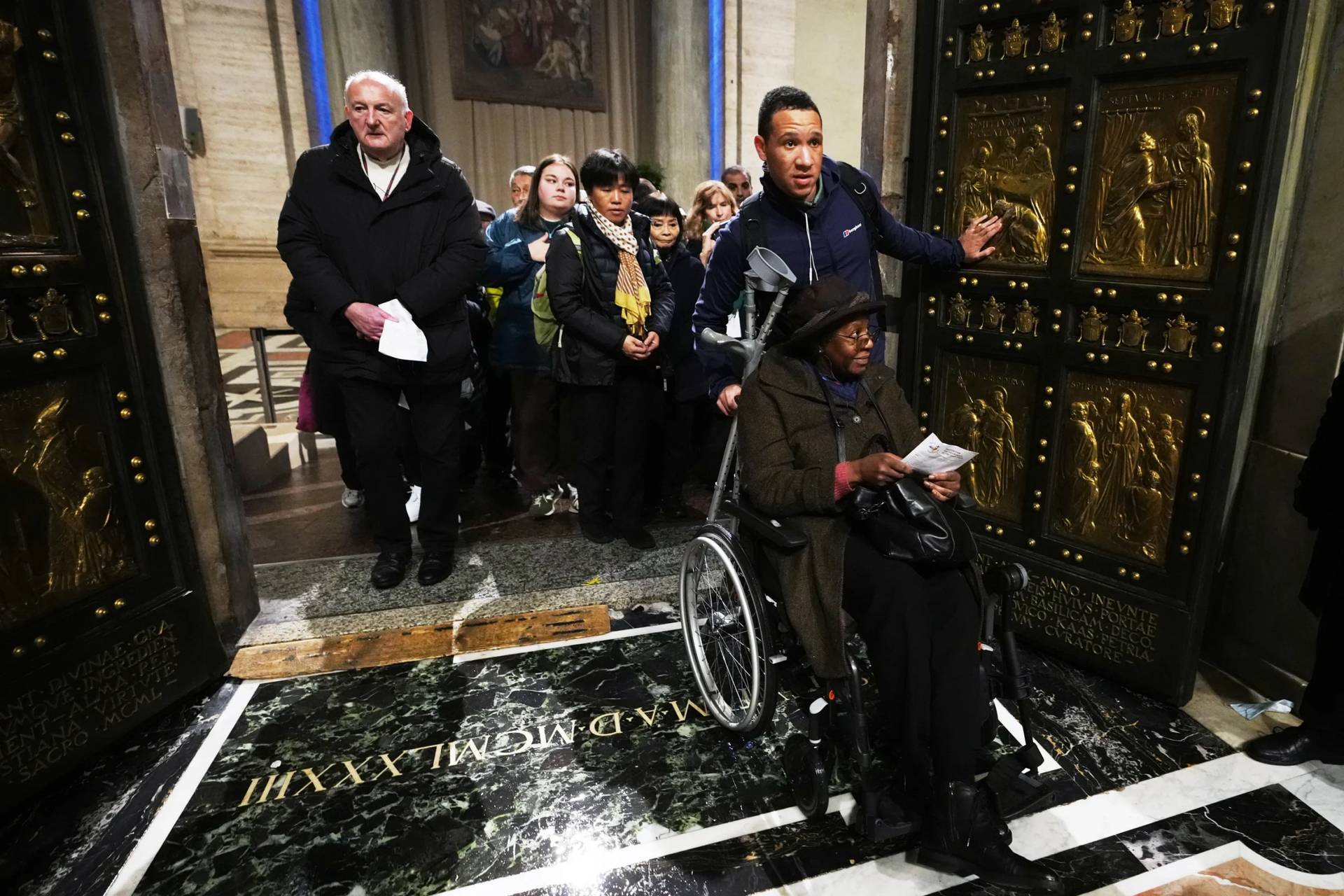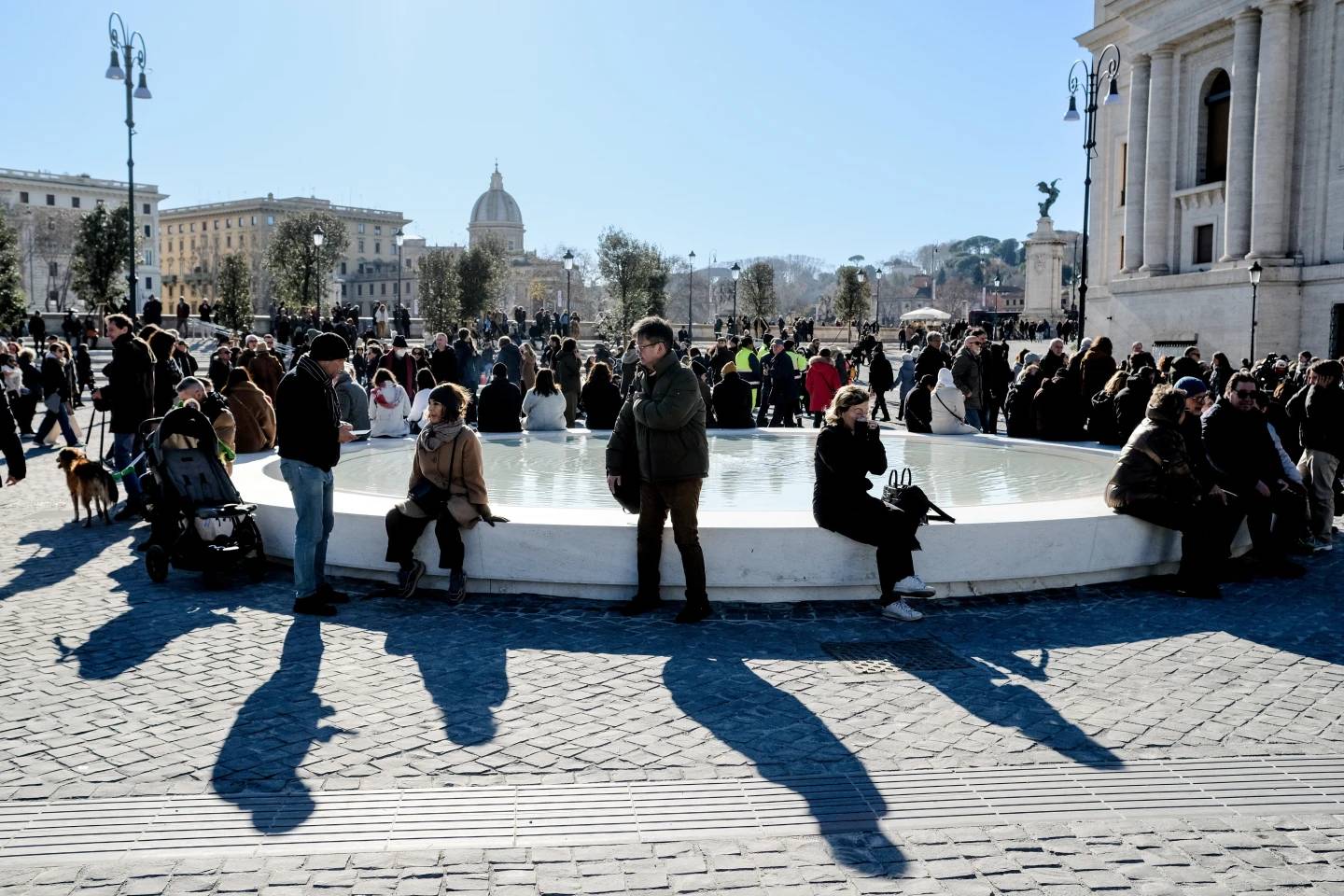ROME — When God starts pointing out a new path to follow, doubts over whether it is orthodox or heretical can creep in, Pope Francis said at his morning Mass.
“The devil is at work here, and some friends also help, right?” the pope said December 15 during the Mass in the chapel of the Domus Sanctae Marthae.
The pope’s homily centered on St. John the Baptist and the day’s reading from the Gospel of Luke (7:24-30), in which Jesus asked the crowds why they had gone to see the prophet in the desert.
Everyone went to hear John speak, the pope said. But the Pharisees and the scholars of the law only went to judge him, not be baptized.
Jesus asked if the people went to see “someone dressed in fine garments?” the pope said, adding that “those who dress luxuriously and live sumptuously are found in royal palaces,” not in the desert preaching.
Jesus recognized that the people had gone to see a prophet, a truly great prophet, the pope said, because he was faithful to what the Lord asked him.
But John preached harshly, “he said terrible things to the Pharisees, to the doctors of the law, to the priests. He didn’t say, ‘Well, my dears, behave nicely.’ No. He simply told them, ‘You brood of vipers,’ just like that. He didn’t beat around the bush,” the pope said.
John was critical because they only came to “monitor” and check on him, the pope said, without ever having an open heart to what was being said.
The pope said John the Baptist spoke the truth, even if it cost him his life like when he confronted Herod and told him “to his face” he was an adulterer.
“Well, for sure if a parish priest today were to say in his Sunday homily, ‘There are some among you who are a brood of vipers and there are many adulterers,’ for sure the bishop would receive letters of concern, ‘Oh, send away this priest who insults us.'”
But John insulted Herod and the Pharisees because he was “faithful to his vocation and the truth,” the pope said.
However, John was much more understanding toward the people, he said, telling “public sinners” like the tax collectors and soldiers who approached him for guidance to “stop collecting more than what is prescribed” and don’t extort or falsely accuse and be content with their wages.
John baptized these sinners, asking them to take at least a “minimal step forward because he knew that with this step the Lord would then do the rest” and they would convert, he said.
“He is a pastor who understood the people’s situation and helped them go forward with the Lord,” Pope Francis said.
But even a great and willful prophet like John the Baptist had “moments of darkness” and doubts, like when he wasn’t sure Jesus really was the Messiah because he wasn’t what he had imagined him to be, the pope said.
“The great ones can afford to doubt and this is wonderful. They are confident in their vocation but every time the Lord shows them a new road along the journey, they begin to doubt. ‘But this isn’t orthodox, this is heretical. This isn’t the Messiah I was expecting.'”
But lurking behind this kind of doubt is the devil and the promptings of certain friends, he added.
The pope ended his homily emphasizing the importance of saying what is true and of recognizing what tiny first steps people are able to take. “God will do the rest.”














